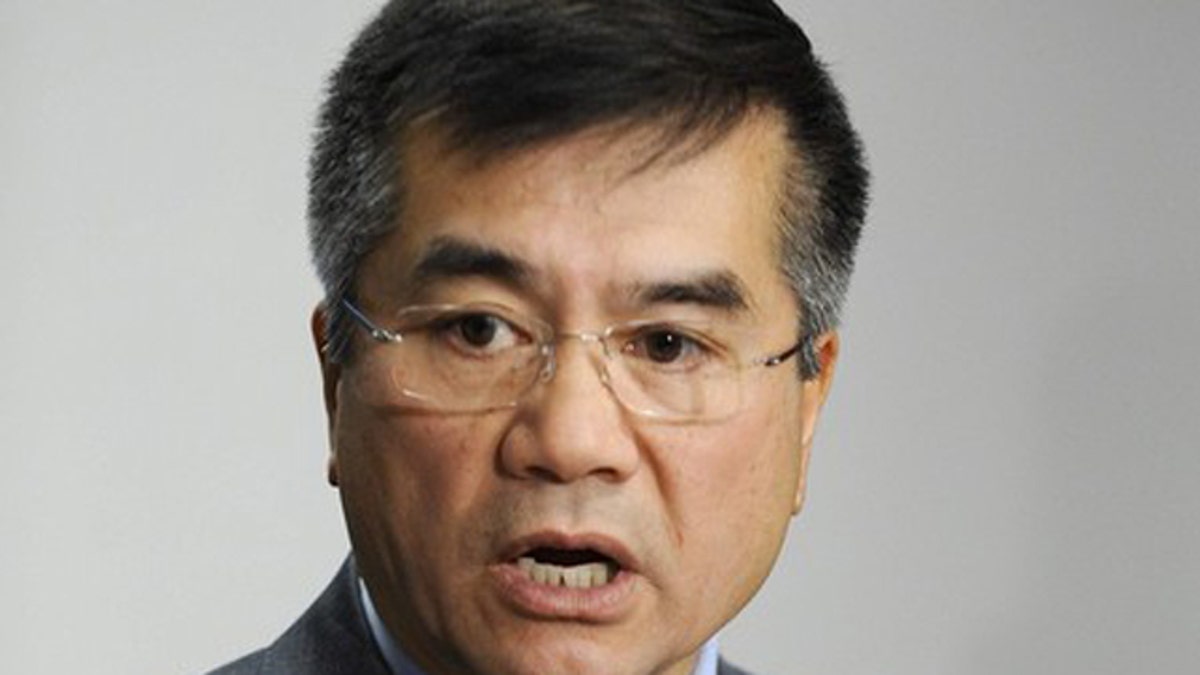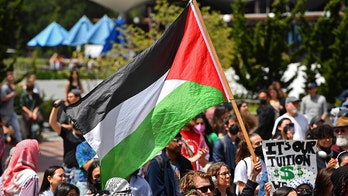
In this Oct. 21, 2009, file photo, Commerce Secretary Gary Locke speaks with reporters in Washington. (Reuters Photo)
The Obama administration praised the Chamber of Commerce on Tuesday for its work promoting free trade with Israel, in a rare and somewhat ironic pause from its rhetorical assault on the group for accepting foreign money.
For days, President Obama and top Democrats have hammered the Chamber by suggesting its foreign dues payments could be funding U.S. elections in violation of federal law. But on Tuesday, U.S. Commerce Secretary Gary Locke walked into the belly of the beast to celebrate the group's latest foreign endeavor -- the launch of its U.S.-Israel Business Initiative.
He applauded the group for its collaboration with Israel, saying the new initiative, combined with a Commerce Department-led trade mission to Israel and Jordan, will mark "an important step" in linking U.S. firms with Israeli partners.
Chamber Senior Vice President Myron Brilliant likewise cheered Locke's work promoting U.S. exports and America's trade relationship with Israel.
The event, coinciding with the 25th anniversary of the U.S.-Israel Free Trade Agreement, underscored the tricky, often fuzzy, relationship the administration has with the Chamber.
While Obama and the Democratic Party use the Chamber as a political foil on the campaign trail, casting the group as the embodiment of all things wrong with lax campaign finance law, the administration also has tried to work with the Chamber on policy issues. Though Obama hammers the group for foreign contributions -- which come in large part from foreign affiliates' dues payments -- his officials also occasionally drop by those foreign affiliates while on overseas trade missions. Just last month, Commerce Undersecretary Francisco Sanchez gave an address at the American Chamber of Commerce in New Delhi on his first official trip to India.
The Commerce Department dismissed the suggestion Tuesday that the visit to the Israel summit marked a shift in attitude toward the Chamber's activities, but said they will continue to work together.
"The criticism of the Chamber is not that they do business with companies based in foreign countries. The problem is that they don't disclose who bankrolls their political activities," a Commerce Department spokesperson told FoxNews.com. "This issue didn't come up during the secretary's meeting, and we will continue to work with the Chamber on issues of mutual concern."
The Chamber adamantly denies that any of its foreign payments make their way into political campaigns in the United States.
Though the Obama administration says the campaign finance warnings will continue to be a part of the president's message up through Election Day, White House Press Secretary Robert Gibbs signaled Sunday that the administration would like another chance at a stable relationship with the Chamber. The organization initially worked with the administration on legislation like the stimulus package when Obama first came into office but within months directed its efforts toward opposing the health care overhaul and other initiatives.
"The Chamber supported the president's recovery plan," Gibbs said on NBC's "Meet the Press" Sunday. "The president -- we would like to have had the chamber's support in dealing with small business tax cuts that Republicans oppose and took us three months longer to get than it should have. We would, quite frankly, like the chamber's support on common sense Wall Street reform that starts to put Main Street back in charge and not held hostage by Wall Street."
Ex-White House Chief of Staff Rahm Emanuel did a little fence-mending last November when he agreed to speak at a dinner for top Chamber officials. But tensions again flared earlier this month after Obama started warning that the Chamber's political spending could tilt the scales in the election without voters ever knowing where the money is coming from.




